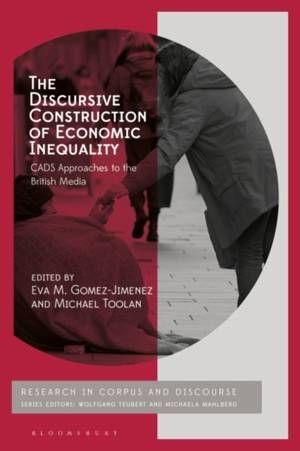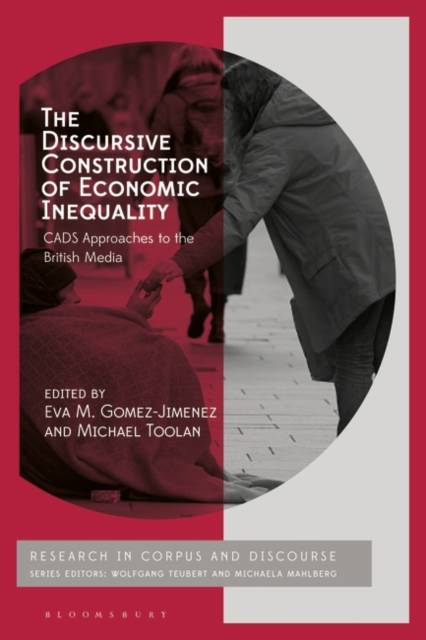
Bedankt voor het vertrouwen het afgelopen jaar! Om jou te bedanken bieden we GRATIS verzending (in België) aan op alles gedurende de hele maand januari.
- Afhalen na 1 uur in een winkel met voorraad
- In januari gratis thuislevering in België
- Ruim aanbod met 7 miljoen producten
Bedankt voor het vertrouwen het afgelopen jaar! Om jou te bedanken bieden we GRATIS verzending (in België) aan op alles gedurende de hele maand januari.
- Afhalen na 1 uur in een winkel met voorraad
- In januari gratis thuislevering in België
- Ruim aanbod met 7 miljoen producten
Zoeken
The Discursive Construction of Economic Inequality
CADS Approaches to the British Media
€ 271,45
+ 542 punten
Omschrijving
This book analyses diverse public discourses to investigate how wealth inequality has been portrayed in the British media from the time of the Second World War to the present day. Using a variety of corpus-assisted methods of discourse analysis, chapters present an historicized perspective on how the mass media have helped to make sharply increased wealth inequality seem perfectly normal. Print, radio and online media sources are interrogated using methodologies grounded in critical discourse analysis, critical stylistics and corpus linguistics in order to examine the influence of the media on the British electorate, who have passively consented to the emergence of an even less egalitarian Britain.
Covering topics such as Second World War propaganda, the 'Change4Life' anti-obesity campaign and newspaper, parliamentary and TV news programme attitudes to poverty and austerity, this bookwill be of value to all those interested in the mass media's contribution to the entrenched inequality in modern Britain.
Covering topics such as Second World War propaganda, the 'Change4Life' anti-obesity campaign and newspaper, parliamentary and TV news programme attitudes to poverty and austerity, this bookwill be of value to all those interested in the mass media's contribution to the entrenched inequality in modern Britain.
Specificaties
Betrokkenen
- Uitgeverij:
Inhoud
- Aantal bladzijden:
- 248
- Taal:
- Engels
- Reeks:
Eigenschappen
- Productcode (EAN):
- 9781350111288
- Verschijningsdatum:
- 23/07/2020
- Uitvoering:
- Hardcover
- Formaat:
- Genaaid
- Afmetingen:
- 156 mm x 234 mm
- Gewicht:
- 517 g

Alleen bij Standaard Boekhandel
+ 542 punten op je klantenkaart van Standaard Boekhandel
Beoordelingen
We publiceren alleen reviews die voldoen aan de voorwaarden voor reviews. Bekijk onze voorwaarden voor reviews.








